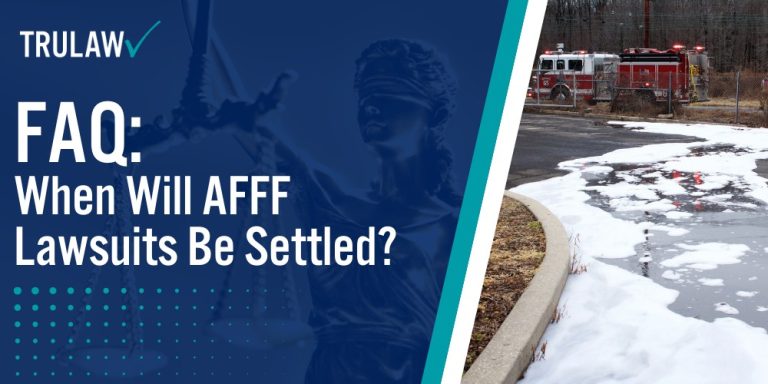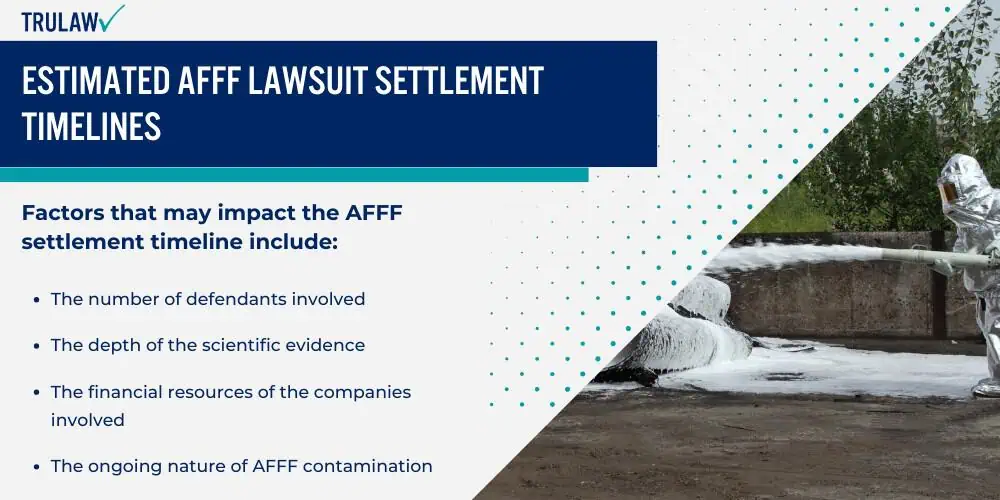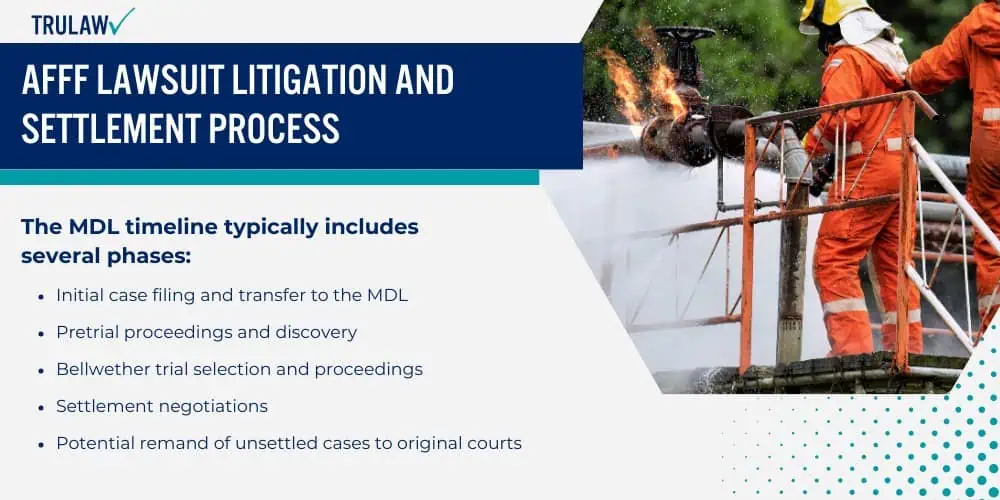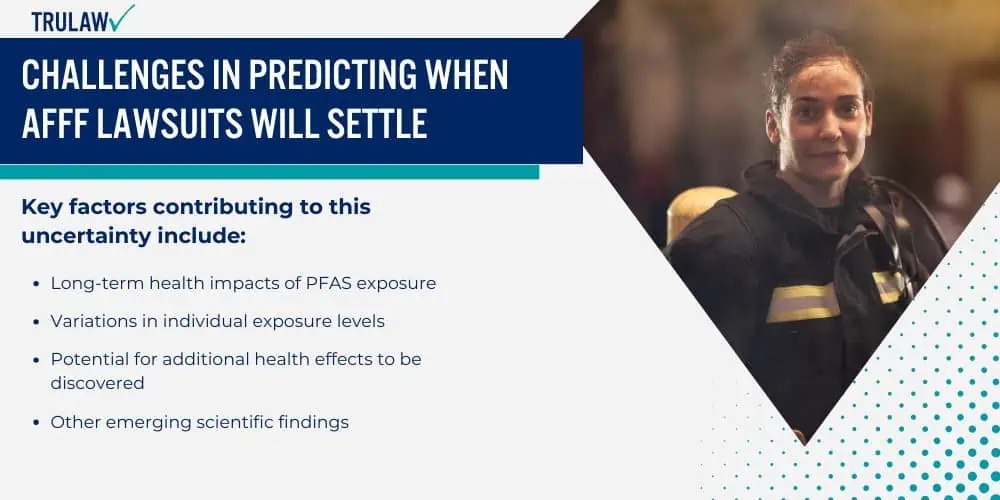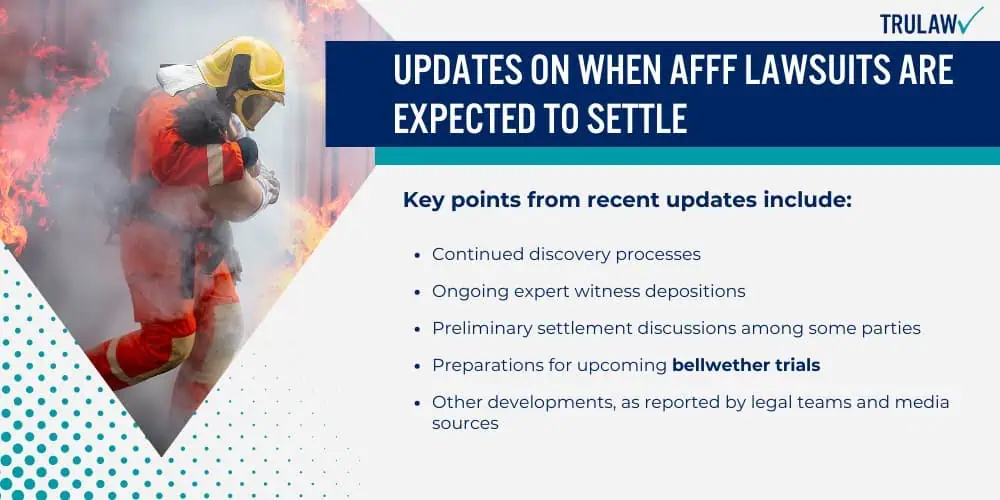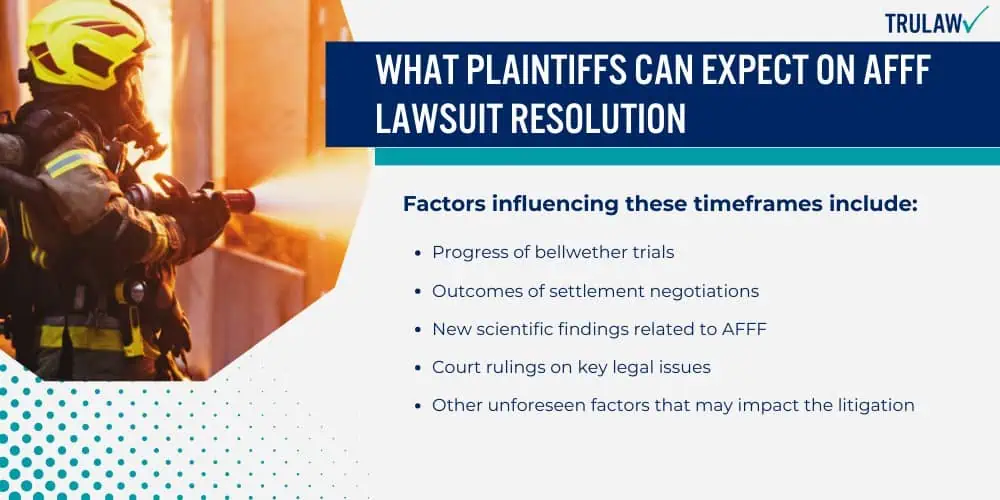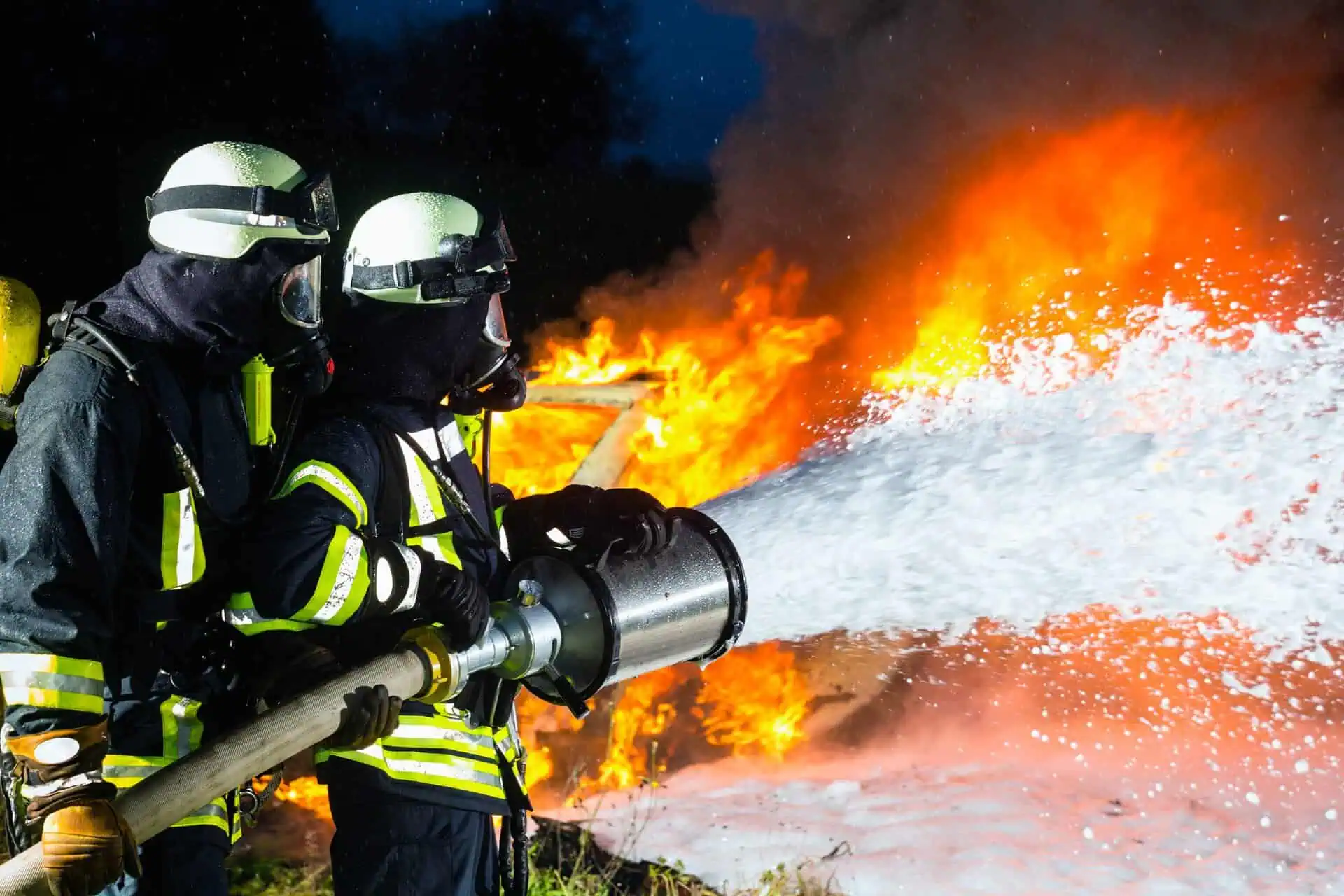The timeline for AFFF firefighting foam lawsuit settlements depends on various factors.
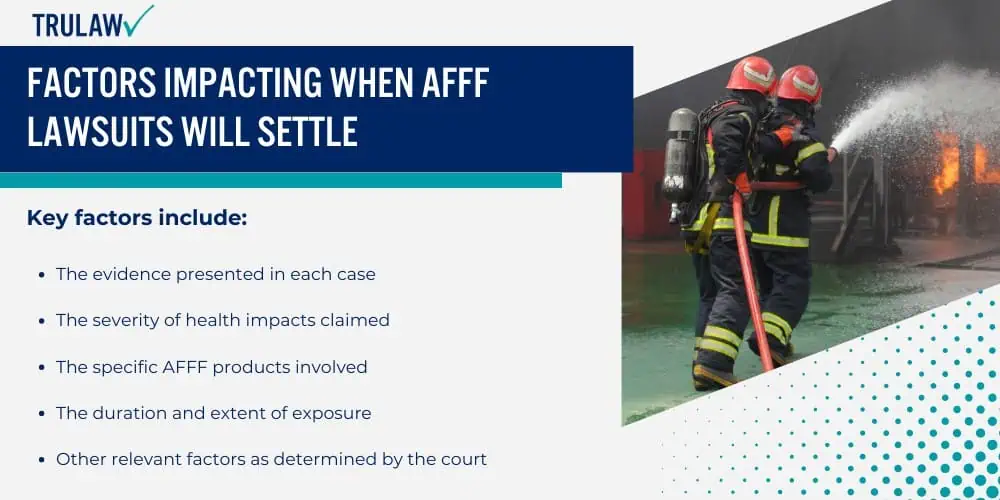
These factors include the number of plaintiffs involved, the intricacy of the cases, and ongoing scientific research.
The legal process for mass tort litigation like AFFF lawsuits can be lengthy and detailed.
Number of Plaintiffs Filing AFFF Lawsuits Affects Timing
The number of plaintiffs filing AFFF firefighting foam lawsuits plays a significant role in settlement timing.
As more individuals join the litigation, the process may become more intricate.
This increased intricacy can lead to longer negotiations and potentially delayed settlements.
The sheer volume of cases requires careful review and organization by the courts.
Consolidating similar cases and establishing a fair settlement structure for all parties involved takes time.
The more plaintiffs there are, the more time it may take to reach a resolution that addresses everyone’s claims.
How AFFF Cases Influence Settlement Timeline
Individual AFFF exposure cases can significantly impact the overall settlement timeline.
The strength and outcomes of these cases shape the direction of the litigation.
They also influence the defendants’ willingness to negotiate settlements.
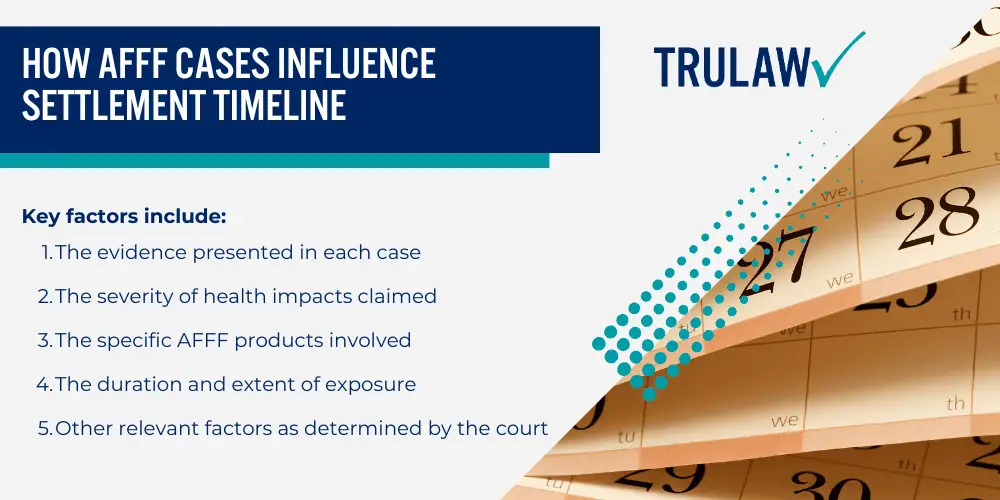
Key factors include:
- The evidence presented in each case
- The severity of health impacts claimed
- The specific AFFF products involved
- The duration and extent of exposure
- Other relevant factors as determined by the court
These elements contribute to the intricacy of the litigation.
They also affect how long it may take to reach a fair settlement for all parties involved.
